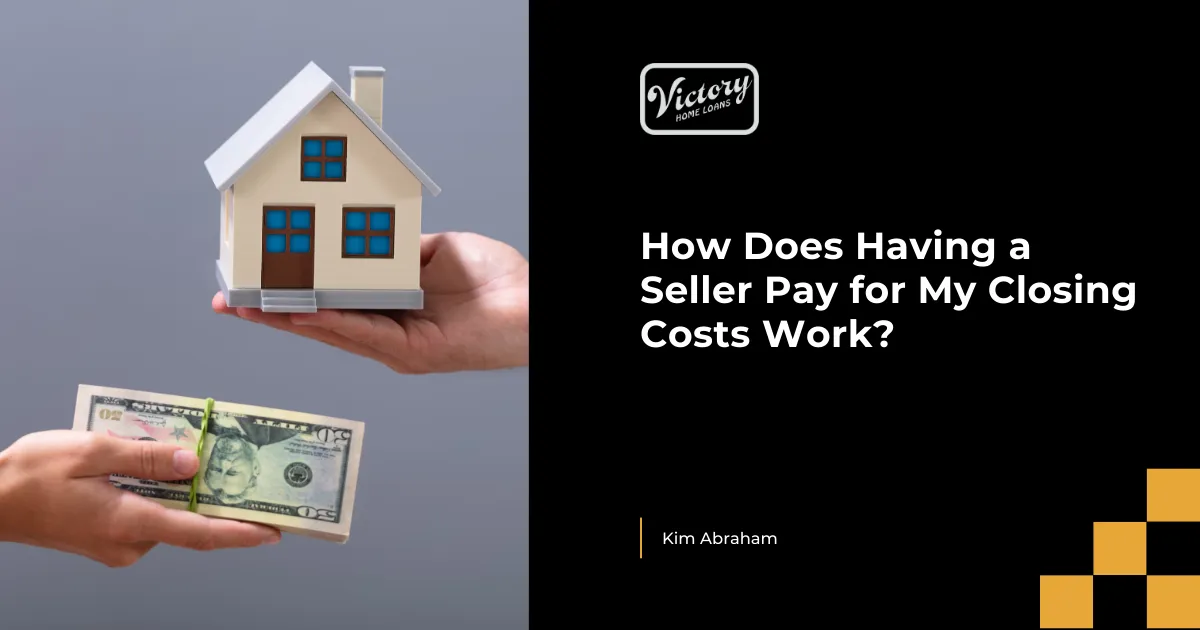Resources to Get You In a Home.

How Does Having a Seller Pay for My Closing Costs Work?
Buying a home comes with more than just the down payment. You also have to account for closing costs—fees associated with the final steps of the mortgage process. These costs can add up to 2% to 5% of the home’s purchase price. For many buyers, especially first-time homeowners, that can be a financial hurdle.
One common solution? Asking the seller to help cover those costs.
What Are Closing Costs?
Closing costs typically include:
Loan origination fees
Title insurance
Appraisal and inspection fees
Escrow fees
Prepaid taxes and homeowners insurance
According to a 2023 report by ClosingCorp, the average closing cost for a single-family home (excluding taxes) was $6,905. [Source: https://www.closing.com/resources/2023-closing-cost-report/]
What Does It Mean to Have the Seller Pay Closing Costs?
When you hear “seller-paid closing costs,” it means that during the negotiation, the buyer asks the seller to cover some or all of these fees. This is done through something called a seller concession.
The money doesn’t come out of the seller’s pocket as a separate payment. Instead, the buyer typically offers a slightly higher purchase price to offset the seller’s contribution. For example:
Home price: $300,000
Buyer offers: $306,000
Seller agrees to pay $6,000 toward closing costs
This way, the seller still nets the original $300,000, and the buyer rolls the cost into the loan.
Are There Limits?
Yes. How much a seller can contribute depends on the type of loan:
Conventional loans: Seller can pay up to 3% of the purchase price if the buyer puts less than 10% down, and up to 6% if the down payment is higher.
FHA loans: Seller can pay up to 6%.
VA loans: Seller can pay up to 4%, plus some other costs.
These limits are set by the loan program, not the seller or buyer. [Source: https://www.fanniemae.com/media/19511/display]
When Does This Strategy Make Sense?
Using seller-paid closing costs can be a smart option if:
You're short on cash for closing, but still want to keep your savings intact
You’re buying in a buyer’s market, where sellers are more willing to negotiate
You’d rather roll those costs into your mortgage than pay out of pocket
It may not be ideal in a highly competitive market, where sellers are unlikely to offer concessions if they have multiple offers.
Final Thoughts
Having a seller cover your closing costs can make homeownership more affordable and help keep your savings available for future needs. The key is to work closely with your mortgage professional and real estate agent to make sure it’s done strategically and within the loan program’s limits.
Sources for Further Reading:
ClosingCorp 2023 Cost Report:
https://www.closing.com/resources/2023-closing-cost-report/Fannie Mae Seller Concessions:
https://www.fanniemae.com/media/19511/displayFreddie Mac on Closing Costs:
https://www.freddiemac.com/blog/homeownership/20211027_what_closing_costs_cover




Facebook
LinkedIn
Instagram